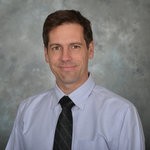 Led by Dr. Alex Scott
Led by Dr. Alex Scott
Tendinopathies are widespread in workers and in athletes, and include conditions such as Achilles tendinopathy, patellar tendinopathy (“jumper’s knee”), tennis elbow, rotator cuff tendinopathy, gluteal tendinopathy, and hamstrings tendinopathy. Although some cases of acute tendinopathy resolve spontaneously with rest, many become chronically painful and debilitating. Anti-inflammatory medications are not effective cures for chronic tendinopathy. When considering the time lost from work and sport tendinopathy has enormous clinical and societal impacts. Physical therapy is considered a front line treatment for tendinopathy, but much work needs to be done to optimize tendon rehabilitation
The goal of my research group is to understand the influence of movement on tendon biology, and to incorporate this knowledge into new clinical strategies for tendinopathy. New treatments currently being examined include movement based therapies, physical therapy modalities, and novel drug strategies.
In adult tendons, tenocytes are a specialized, load-responsive fibroblast responsible for adaptive and repair responses. Certain types of movement (e.g. exercise) are beneficial for tendon adaptation, much like in muscle or bone. Conversely, excessive repetitions or high loads can lead to the development of tendon overuse pathology – a chronic, painful condition known as tendinopathy. Identifying the optimal loading parameters for tenocytes will allow us to improve injury-prevention and rehabilitation strategies.
Educational Background
My background bridges clinical training (BSc in Physical Therapy 2000), movement and exercise science (MSc in Human Kinetics 2003), and laboratory methods (PhD in Experimental Medicine 2008). My PhD focused on mechanisms of tendinopathy, and was awarded the Top Graduating Doctoral Student award at the Vancouver Coastal Health Research Institute. I teach (20% workload) in the MPT program (RSPT 512 and 544).
Affiliations
I am an Assistant Professor in the Physical Therapy department at UBC. I have core membership in the Centre for Hip Health and Mobility, and past membership in the CIHR Skeletal Regenerative Medicine Team as well as the UBC Biomedical Research Centre. The majority of laboratory funding is from the Canadian Institutes of Health Research and the Canada Foundation for Innovation.